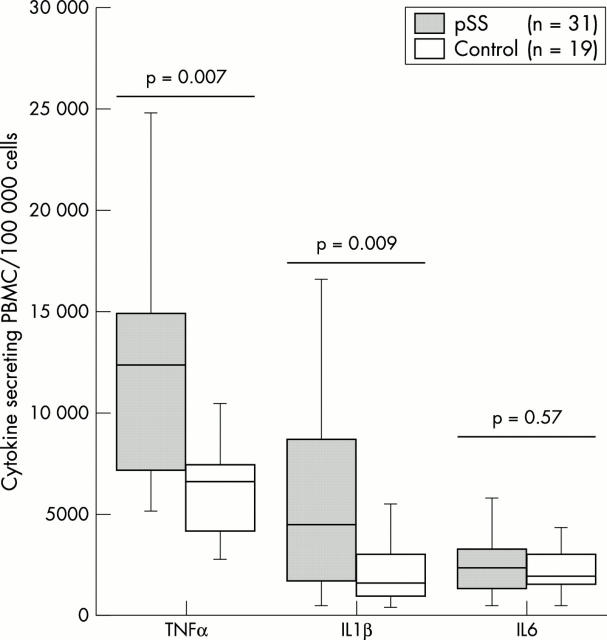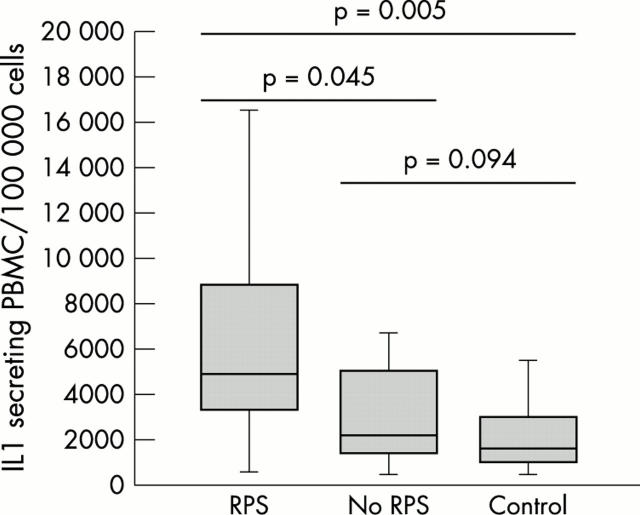Abstract
Methods: PBMC spontaneously secreting tumour necrosis factor α (TNFα), interleukin 1ß (IL1ß), and interleukin 6 (IL6) were assessed by enzyme linked immunospot (ELISPOT) analysis in a cohort of 31 patients with pSS fulfilling the modified European classification criteria. Nineteen healthy volunteers served as controls. ELISPOT results were correlated with glandular and extraglandular manifestations and autoantibody titres—that is, rheumatoid factor (RF) isotypes, anti-Ro/SS-A, anti-La/SS-B as determined by an enzyme linked immunosorbent assay (ELISA) technique.
Results: The number of TNFα and IL1ß secreting cells was significantly higher in patients with pSS than in controls. No differences were detected in the number of IL6 secreting PBMC. Patients with recurrent parotid swelling (RPS) had a significantly increased number of IL1ß secreting PBMC. Moreover, the number of IL1ß secreting PBMC correlated with the disease duration (rs=0.479; p<0.01) and with the concentration of IgM RF (rs=0.63; p<0.01) and IgG RF (rs=0.42; p<0.05). Other autoantibodies did not correlate with cytokine secreting PBMC.
Conclusion: The increased systemic secretion of IL1ß and TNFα in patients with pSS points to a pathogenic impact of these cytokines in this autoimmune disease. In particular the correlation of IL1ß secreting PBMC with RPS and RF production indicates that IL1ß is a crucial regulator in the development of local and systemic disease manifestations.
Full Text
The Full Text of this article is available as a PDF (133.5 KB).
Figure 1 .
Number of TNFα, IL1ß, and IL6 secreting PBMC in patients with pSS and healthy controls. The data of the box plots are given as median plus the 25th/75th centiles. Bars represent the total range of values.
Figure 2 .
Number of spontaneously IL1 secreting PBMC in patients with pSS with RPS (n=12) and without RPS (n=19) as well as in healthy controls. Data of the box plots are given as median plus the 25th/75th centiles. Bars represent the total range of values.




